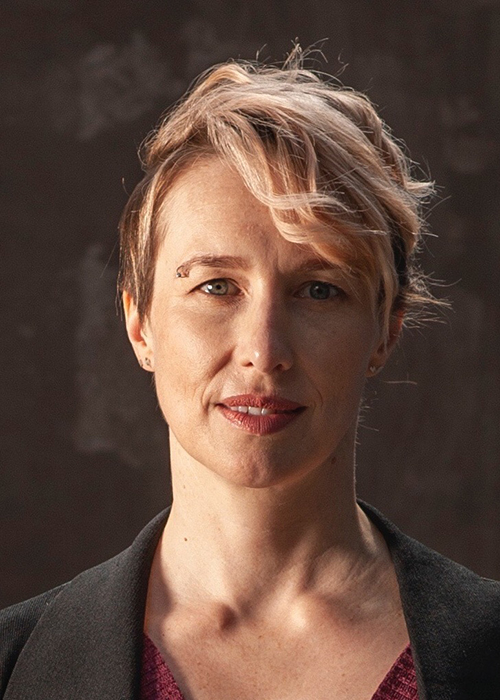World Field Epidemiology Day 2022: Empowering field epidemiologists for stronger health systems
World Field Epidemiology Day is a global movement that recognises and raises awareness of field epidemiology. At ANU, we are celebrating the vital role field epidemiologists play in protecting population health and advancing global health security with a conference discussing this year's theme: Empowering Field Epidemiologists for Stronger Health Systems.
Join us, the Master of Applied Epidemiology (MAE) team, as we look back and celebrate 31 years of impact while looking to the future. Hear from esteemed graduates, learn about the work of current students, re-connect with friends, and network with your peers.
We have a lineup of outstanding speakers that will share their stories from the field to highlight the importance of field epidemiology in strengthening public health systems worldwide to better detect and respond to outbreaks.
| Time | Topic | Speaker |
| 9:00-9:10 am | Welcome to Country | Ngunnawal Elder |
| 9:10-9:15 am | Welcome | Professor Hilary Bambrick |
| 9:15-9:30 am | MAE Program - Future Directions | Professor Tony Stewart |
| 9:30-9:45 am |
MAE Alumni Presentation Title: Indo-Pacific Centre for Health Security | Dr Stephanie Williams |
| 9:45-10:00 am | MAE Alumni Presentation |
Dr Angela Merianos Team Coordinator, Pacific Health Security and Communicable Diseases, WHO/WPRO Division of Pacific Technical Support |
| 10:00-10:15 am | MAE Alumni Presentation | TBC |
| 10:15-10:30 am | MAE Alumni Presentation | TBC |
| 10:30-11:00 am | Morning tea | |
| Student Presentations | Student Name and Cohort | |
| 11:00-11:15 am | Presentation Title: Potential Impact of a social media post in 2019 on rabies post-exposure prophylaxis (PEP) at Institut Pasteur du Cambodge (IPC), Cambodia | Malen Chan (2022) |
| 11:15-11:30 am | Presentation Title: Using Bayesian Network modelling to predict risk of death due to COVID-19 in adults and estimate the potential benefits of antiviral and adjuvant therapies | Ramona Muttucumaru (2022) |
| 11:30-11:45 am | Presentation Title: Trends in Antibiotic Resistant Non Typhoidal Salmonella in New South Wales 2016-2022 | Patrick Peacock (2022) |
| 11:45-12:00 pm | Presentation Title: Post-pandemic re-emergence of influenza in Victoria, Australia | Catherine Pendrey (2022) |
Bios
Professor Hilary Bambrick

Hilary is Director of the National Centre for Epidemiology and Population Health at the Australian National University in Ngunnawal and Ngambri Country (Canberra). She is an environmental epidemiologist and bioanthropologist researching the health impacts of global heating, especially on more vulnerable populations, and has expertise in the development, implementation and evaluation of adaptation strategies.
She has consulted for WHO and UNDP on climate adaptation strategies for health, and she led the health impacts assessment for Australia's national climate change review (The Garnaut Review, 2008) and previously worked as the Head of the School of Public Health and Social Work at Queensland University of Technology (QUT).
Professor Tony Stewart

Tony Stewart is the MAE Director. He graduated as part of the first cohort (1991-1993) and has been involved with the program and the global FETP ever since. After graduating from the MAE he worked with the Burnet Institute based in Indonesia on immunisation and maternal and child health projects; and with the Secretariat of the Pacific Community on pandemic preparedness and vector borne diseases.
From 2014-2020 he worked with WHO's Global Outbreak Alert and Response Network (GOARN) and the WHO Health Emergencies Program, on responses to Ebola in West Africa, Zika, the Rohingya refugee crises in Cox Bazar and other events.
Dr Stephanie Williams
 Dr Williams is advancing Australia's interests by ensuring Australia's world-class public health and medical research expertise is used for the good of our region, with a particular focus on the Pacific island countries, Papua New Guinea and Timor-Leste.
Dr Williams is advancing Australia's interests by ensuring Australia's world-class public health and medical research expertise is used for the good of our region, with a particular focus on the Pacific island countries, Papua New Guinea and Timor-Leste.
She is also leading Australia's engagement in relevant international fora, focusing global attention on the needs of our region. In addition, the Ambassador guides the implementation of Australia's $300 million Health Security Initiative for the Indo- Pacific region.
Location
Room: Finkel Lecture Theatre
Speakers
- Professor Hilary Bambrick
- Professor Tony Stewart
- Dr Stephanie Williams
- Dr Angela Merianos
Contact
- Laura Vitler
Other events you might be interested in
Page Owner:
ANU Communications & Engagement



